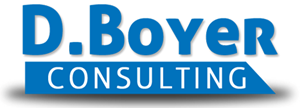Business is mostly conducted via email or phone communications.
Office hours 10:00 a.m. to 6:00 p.m, Mon. - Thurs., and 10:00 a.m. to 2:00 p.m. on Fridays.
SEND EMAIL INQUIRIES DIRECTLY TO:
Dawn.Boyer@me.com
Business is mostly conducted via email or phone communications.
Office hours 10:00 a.m. to 6:00 p.m, Mon. - Thurs., and 10:00 a.m. to 2:00 p.m. on Fridays.
SEND EMAIL INQUIRIES DIRECTLY TO:
Dawn.Boyer@me.com
Business is mostly conducted via email or phone communications.
Office hours 10:00 a.m. to 6:00 p.m, Mon. - Thurs., and 10:00 a.m. to 2:00 p.m. on Fridays.
SEND EMAIL INQUIRIES DIRECTLY TO:
Dawn.Boyer@me.com
FUZZY BUZZWORDS CAN HURT A RESUME – and the job seeker’s chances.
September 17th, 2020 by Dawn Boyer
Fuzzy buzzwords can hurt a resume.
Using grandiose and fuzzy buzzwords in a resume may make the job seeker seem like an impressive job applicant, but closer scrutiny reveals a vagueness that fails to explain the capabilities of the potential candidate. Bullets in a resume should start with action verbs, but the verbs need to be specific to an action to which the layperson can identify. Some recruiters may take the semantical meaning of the words literally, so be careful how you use the verbs in context. Examples of vague words to be updated or explained better in context:
- Accomplished tasking (of course you did – you were working!) – better to describe the general weekly tasks you were required to perform as part of a business interacting with co-workers and what was achieved for your superiors.
- Applied skills/knowledge (already presumed you had the knowledge and skills) – better to explain how you used your subject matter expertise guided someone who didn’t have the same background knowledge and what the mentoring accomplished.
- Colleagues (buddies, pals, friends?) – better to note the job titles for the co-workers and name the projects, job titles of team-mates (and how many), and what was accomplished, or the goals achieved.
- Commitments (was someone getting engaged?) – better to describe goals related to revenue, sales, overhead budget savings, or reduction of man-hours.
- Execute (whom did you kill?) – better to describe how you managed, delegated, supervised, or physically conducted a task and the results of those actions.
- Helped/supported (overused passive verb) – better to describe how your physical activity resulted in accomplishments for the department or company.
- Operational footprint (a fancy term for the area you supervised?) – better to name and describe the environment over which you had authority and the breadth of that responsibility, including the number of subordinates.
- Reporting mechanisms (you wrote a report on the computer?) – better to describe what you were reporting to what job titles for what purpose and the outcome.
- Several, multiple, dozens (get more specific) – instead of noting several or multiple, get as close to the actual metric as possible, e.g., >$24M to showcase just how much you worked on, completed, or how you exceeded minimum quotas.
- Stakeholders (PMP
- Strengthen (as in bodybuilding?) – better to note increases in elements, e.g., rewrote employee guidebook to include contemporary themes and policies or recruited two new technicians to increase IT department trouble desk responses.
- Utilized automated programs (you used a computer program or application?) – better to describe the programs by name, brand, or equipment manufacturer and how your use of those helped you achieve a specific task.
When recruiters read your resume, they are looking for metrics and descriptions of the accomplishments in your past career position(s). What they do not want to read is wording so vague that it sounds important but doesn’t explain what you did or achieved, and it is open to several interpretations. Tell it like it is in simple, plain language.
Dawn Boyer, Ph.D., owner of D. Boyer Consulting – provides resume writing, editing, publishing, and print-on-demand consulting. Reach her at Dawn.Boyer@me.com or visit her website at www.dboyerconsulting.com.
Readers Comments
FUZZY BUZZWORDS CAN HURT A RESUME – and the job seeker’s chances.
September 17th, 2020 by Dawn Boyer
Fuzzy buzzwords can hurt a resume.
Using grandiose and fuzzy buzzwords in a resume may make the job seeker seem like an impressive job applicant, but closer scrutiny reveals a vagueness that fails to explain the capabilities of the potential candidate. Bullets in a resume should start with action verbs, but the verbs need to be specific to an action to which the layperson can identify. Some recruiters may take the semantical meaning of the words literally, so be careful how you use the verbs in context. Examples of vague words to be updated or explained better in context:
- Accomplished tasking (of course you did – you were working!) – better to describe the general weekly tasks you were required to perform as part of a business interacting with co-workers and what was achieved for your superiors.
- Applied skills/knowledge (already presumed you had the knowledge and skills) – better to explain how you used your subject matter expertise guided someone who didn’t have the same background knowledge and what the mentoring accomplished.
- Colleagues (buddies, pals, friends?) – better to note the job titles for the co-workers and name the projects, job titles of team-mates (and how many), and what was accomplished, or the goals achieved.
- Commitments (was someone getting engaged?) – better to describe goals related to revenue, sales, overhead budget savings, or reduction of man-hours.
- Execute (whom did you kill?) – better to describe how you managed, delegated, supervised, or physically conducted a task and the results of those actions.
- Helped/supported (overused passive verb) – better to describe how your physical activity resulted in accomplishments for the department or company.
- Operational footprint (a fancy term for the area you supervised?) – better to name and describe the environment over which you had authority and the breadth of that responsibility, including the number of subordinates.
- Reporting mechanisms (you wrote a report on the computer?) – better to describe what you were reporting to what job titles for what purpose and the outcome.
- Several, multiple, dozens (get more specific) – instead of noting several or multiple, get as close to the actual metric as possible, e.g., >$24M to showcase just how much you worked on, completed, or how you exceeded minimum quotas.
- Stakeholders (PMP
- Strengthen (as in bodybuilding?) – better to note increases in elements, e.g., rewrote employee guidebook to include contemporary themes and policies or recruited two new technicians to increase IT department trouble desk responses.
- Utilized automated programs (you used a computer program or application?) – better to describe the programs by name, brand, or equipment manufacturer and how your use of those helped you achieve a specific task.
When recruiters read your resume, they are looking for metrics and descriptions of the accomplishments in your past career position(s). What they do not want to read is wording so vague that it sounds important but doesn’t explain what you did or achieved, and it is open to several interpretations. Tell it like it is in simple, plain language.
Dawn Boyer, Ph.D., owner of D. Boyer Consulting – provides resume writing, editing, publishing, and print-on-demand consulting. Reach her at Dawn.Boyer@me.com or visit her website at www.dboyerconsulting.com.
















